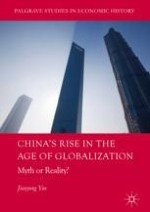2018 | OriginalPaper | Buchkapitel
4. From Tiananmen to Shenzhen: Transition to Capitalism
verfasst von : Jianyong Yue
Erschienen in: China's Rise in the Age of Globalization
Aktivieren Sie unsere intelligente Suche, um passende Fachinhalte oder Patente zu finden.
Wählen Sie Textabschnitte aus um mit Künstlicher Intelligenz passenden Patente zu finden. powered by
Markieren Sie Textabschnitte, um KI-gestützt weitere passende Inhalte zu finden. powered by
